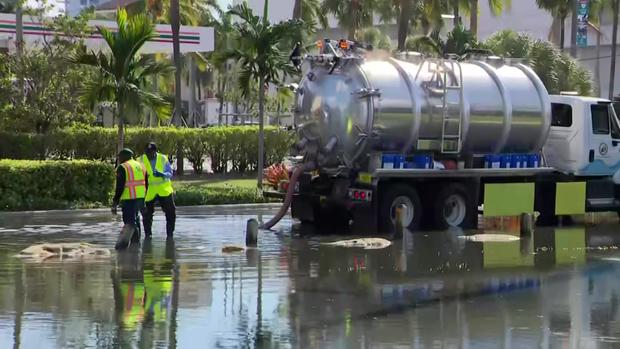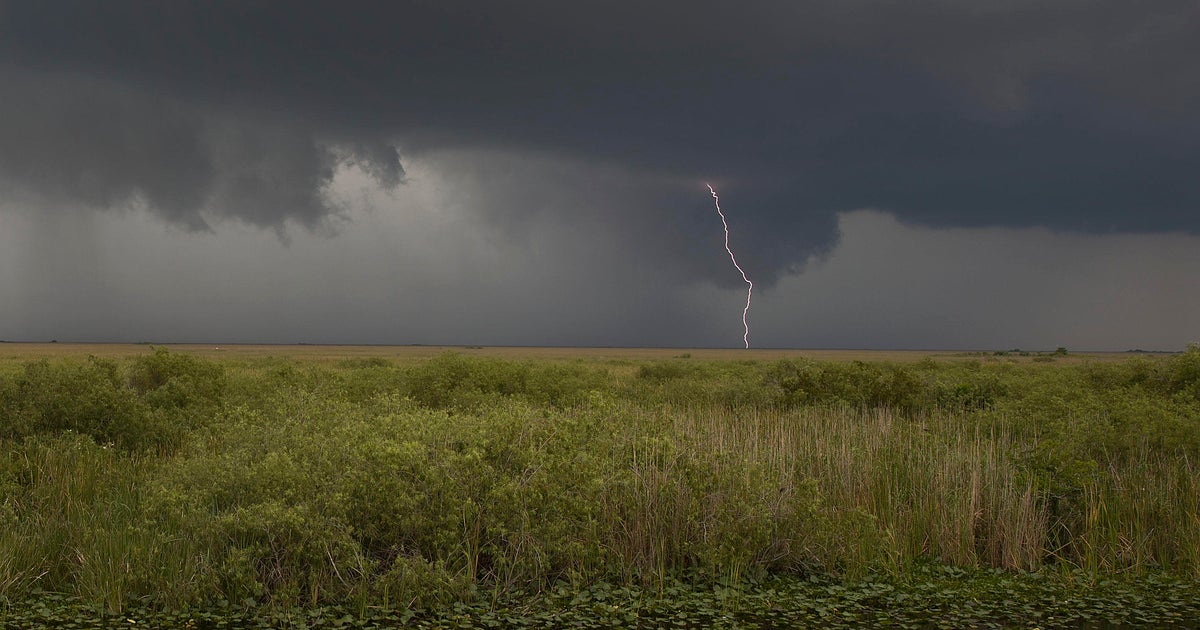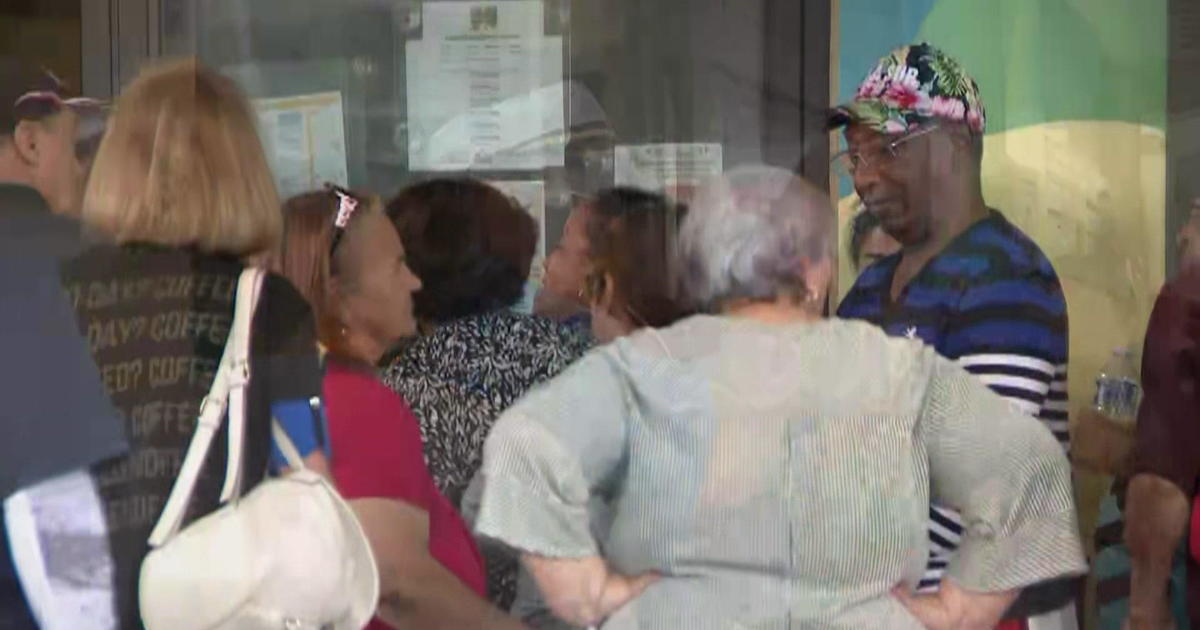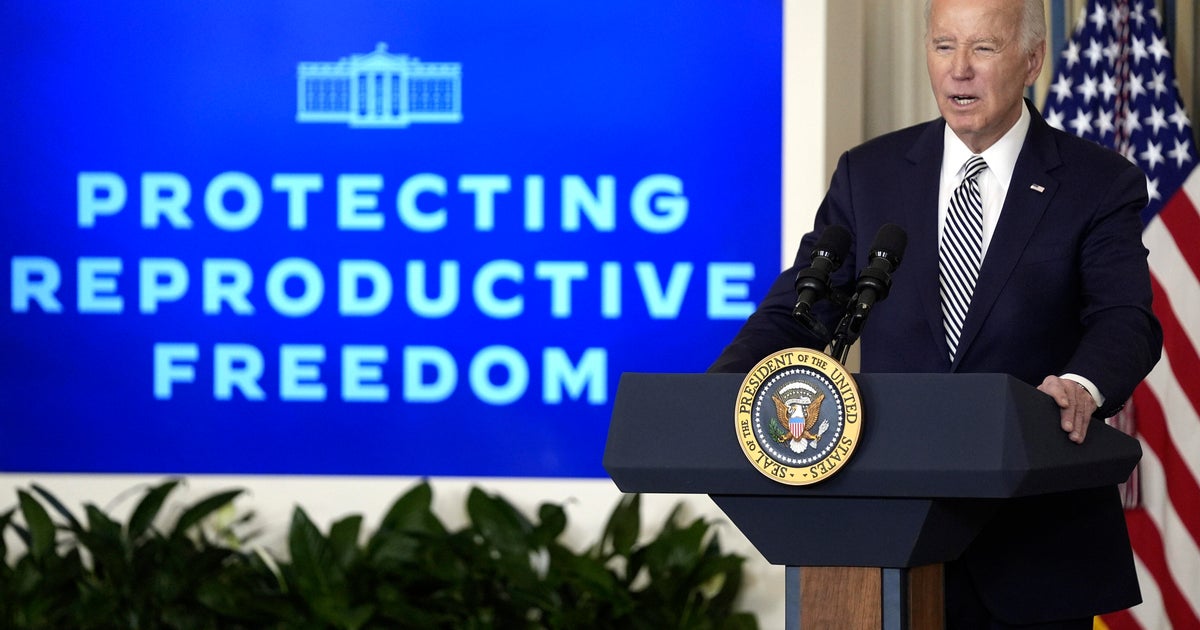Is There A Solution To South Florida's 'Sewage Spill Whack-A-Mole?'
MIAMI (CBSMiami) -- It seems you cannot go a week without hearing about a sewer and water main breaks. The most recent ones catching the headlines are happening in Fort Lauderdale. It started there in December. Pipes erupting in neighborhoods in affluent neighborhoods creating rivers of sewage. Homeowners were not amused. Fort Lauderdale joins a long list of sewer breaks plaguing the South Florida community.
Much of the reason for all of this can be tied to a sewer system that pre-dates when John F. Kennedy was President.
In 1961, less than a million people lived here. Today, nearly three million people are flushing toilets every day and with each flush, there is the potential for a huge mess.
In 2019, a kayaker discovered a huge leak in Biscayne Bay. They were on the Oleta River near Aventura, when they noticed massive sewage covering the area. More than million gallons would spew into Biscayne Bay before Miami-Dade County could shut it down.
Kelly Cox is with Miami WaterKeeper, a grassroots organization focused on fixing a situation that quite frankly stinks.
"Why are we compromising our own personal health or environment's health, and frankly our economic health which suffers from beach closures spill like this when we could instead be doing those pro-active steps? Invest in clean water for Miami," said Cox.
Every week it is another pipe bursting. She, like many residents, find it frustrating.
"Right now what we are seeing is sort of sewage spill whack-a-mole. So we plug one pipe and then we move on to the next one. Or we sit and lie in wait until the next spill to happen and the next crisis happening," she explained.
How did we get here? Money.
Years ago, politicians opted to keep utility bills low. That meant the funds needed for replacements and upgrades for an aging infrastructure did not happen. The fallout led to sewage in the streets.
"It got to the point where the federal government had to step in and say 'Miami-Dade County this is unacceptable and you need to do something to change it,' Cox explained.
In 2013, a federal judge ordered Miami-Dade to upgrade the system, a monumental task.
"I will tell you it gave me pause when I looked at the giant capital program. There had not been anything like it in the county. It was just massive," Kevin Lynskey, the director of Miami-Dade Water and Sewer told CBS4.
He has been on the job as the director of Miami-Dade Water and Sewer for two years. He spends his time spending an outrageous amount of money to fix this mess. An estimated $7.5 billion dollars. However, according to their numbers it is already paying off.
"If you go back 10 years we were averaging between 150-200 spills a year. This past year we had 99 spills. My first year here was the lowest spill amount in the department's history," Lynskey said.
The upgrades underway are mostly out of sight. Sixty-year old plants are being totally revamped.
Wayne Myers, the plant operator at Miami-Dade Water and Sewer central plant showed CBS4's David Sutta around. He pointed to new technology that stays on top of everything.
"You do not have to physically see the leak. A sensor will let you know that and you can see it from a remote location," Myers pointed out.
At the Central plant on Virginia Key, a flurry of activity is underway as automation and preparing for sea level rise are key focuses.
"We are actually performing at an extraordinary high rate today. It may not seem it from the outside because when these pipes burst it seems terrible. But when you only spilling, only spilling, I know it is serious, one gallon for every 40,000, how much improvement can you make?" Lynskey explained.
But there are shortfalls. That massive spill last summer in the Oleta River was a clear reminder of that. The system was on a list of aging systems in line for replacement but had been put off.
"Though we are imperfect, we are making a lot of progress. I'll feel a lot more comfortable when you come back in 5 years and you interview me. Because we will be done with 80% of the program," Lynskey said.
Meanwhile, Miami Waterkeeper believes we cannot afford to wait that long.
Cox explained, "We are here because of this beautiful bay. And our real estate relies on it. Our economy relies on it. Our public health relies on it. And our environment relies on it. These sewage spills can really have cascading effects for the environment."
The good news, despite the headlines, is the situation is getting better. Still with 5000 miles of old and new pipes in Miami-Dade, the director admits spills are still going to happen. He says they are moving as fast as they can. Fort Lauderdale is in a similar situation. Perhaps for them though it could get worse before it gets better.




